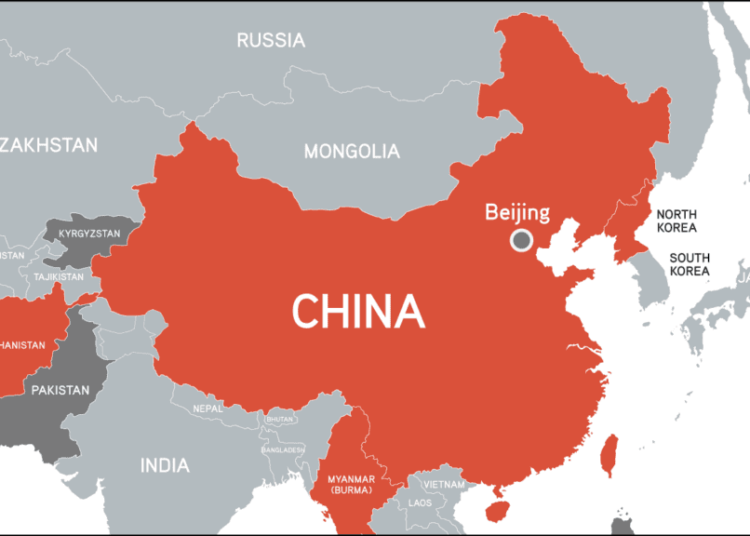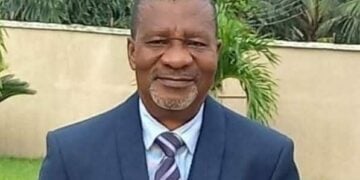The Chinese Government is ready to celebrate the 10th anniversary of the globally acclaimed Belt and Road Initiative (BRI) as nearly 1,000 officials and leaders from over 80 countries including Nigeria have arrived Beijing, the Chinese capital for the 3rd edition of the Belt and Road Forum For International Cooperation with the theme “High Quality Belt and Road Cooperation: Together for Common Development and Prosperity”.
According to Chinese authorities, President Xi Jinping will open the two-day event on October 17 with a keynote address, which will highlight the goal of building a high quality Belt and Road and pointing the direction of cooperation through global partnership for connectivity and promoting multilateral development by investing in infrastructure and eradicating poverty.
The BRI was unveiled in 2013 by President Xi as part of China’s opening up process and connecting the world with infrastructure and inclusive development for a shared future. Since 2013, the BRI has attracted over 152 countries as members and about 30 international organisations. China formulated the Strategic Planning on Building of the Silk Road Economic Belt and the 21st Century Maritime Silk Road in 2014 and introduced the Vision and Action on Jointly Building the Silk Road Economic Belt and the 21st Century Maritime Silk Road to world in 2015.
The BRI is based on the Chinese ideals of “building a moderately prosperous society and a global community of shared future” and it is centred around issues of advancement in policy, infrastructure, trade, finance and people-to-people connectivity aimed at eliminating poverty with a view to increasing productivity and improving the living standards of the people.
Nigeria will participate in the forum with a very strong delegation of businessmen, entrepreneurs and important government agencies. At the time of filing this report, information from the Nigerian embassy in Beijing suggested that Vice President Kashim Shetima will lead the delegation on behalf of the Nigerian government to discuss how to expand infrastructure development, trade and investment, agriculture, ICT among others.
Nigeria is one of the African countries to have benefited massively from the BRI with enormous infrastructure funded and executed by Chinese companies in different parts of the country. These include the recently completed Keffi-Abuja-Akwanga-Lafia road and the Lekki Deep Sea Port in Lagos constructed by the China Harbour Engineering Company (CHEC) among others.
Professor Wang Sangui of the Renmin University of China, who spoke to our correspondent in Beijing ahead of the forum said the “BRI is important for developing countries. It will help the countries to improve their infrastructure and build more sustainable economic development. China is willing to share its experience for a better world.”
Also speaking on the 10th anniversary of the Belt and Road Initiative, Nigerian expert on international affairs, Dr. Austin Maho said the BRI in ten years has established China’s footprint around the globe in terms of infrastructural financing especially in the areas of building bridges, roads and railway lines that enhance people- to -people connectivity and communication.
He said “ just like the old silk road which the BRI is modeled after, its purpose is to create wealth along its route by recreating the old silk road and extending it to Africa through a new maritime silk road.”
He noted that the BRI as the centrepiece of China’s foreign policy, has been a vehicle for the promotion of economic prosperity and regional cooperation, mutual learning between civilizations, and promotion of world peace, growth and development.
He added that the BRI signifies the rise of China and its preparedness to play greater role in world affairs in line with its rising power and global influence.
He said “the initiative is the largest infrastructure and investment project in history covering more than 150 countries with China spending over $4 trillion on infrastructural investments as at the end of 2023. BRI projects are spread all over the world.
“ Nigeria has been a major beneficiary of BRI projects. Some of these projects include the Abuja-Kaduna rail line, built by China Civil Engineering Construction Company (CCECC) the Abuja, Keffi Lafia, Makurdi road dualisation which was successfully completed by CHEC, the Zungeru Hydroelectric project undertaken by Sino Hydro and a host of other projects.
“Perhaps of most important is that these projects are wholly financed by Chinese Exim bank through the provision of concessionary loans or counterpart funding. The projects are designed in such a way that they can pay for themselves or have the capacity to generate wealth and increase trade and income for the people.
“Ten years on, the Belt and Road Initiative has expanded China’s footprint around the world, promoting development and shared prosperity.”





